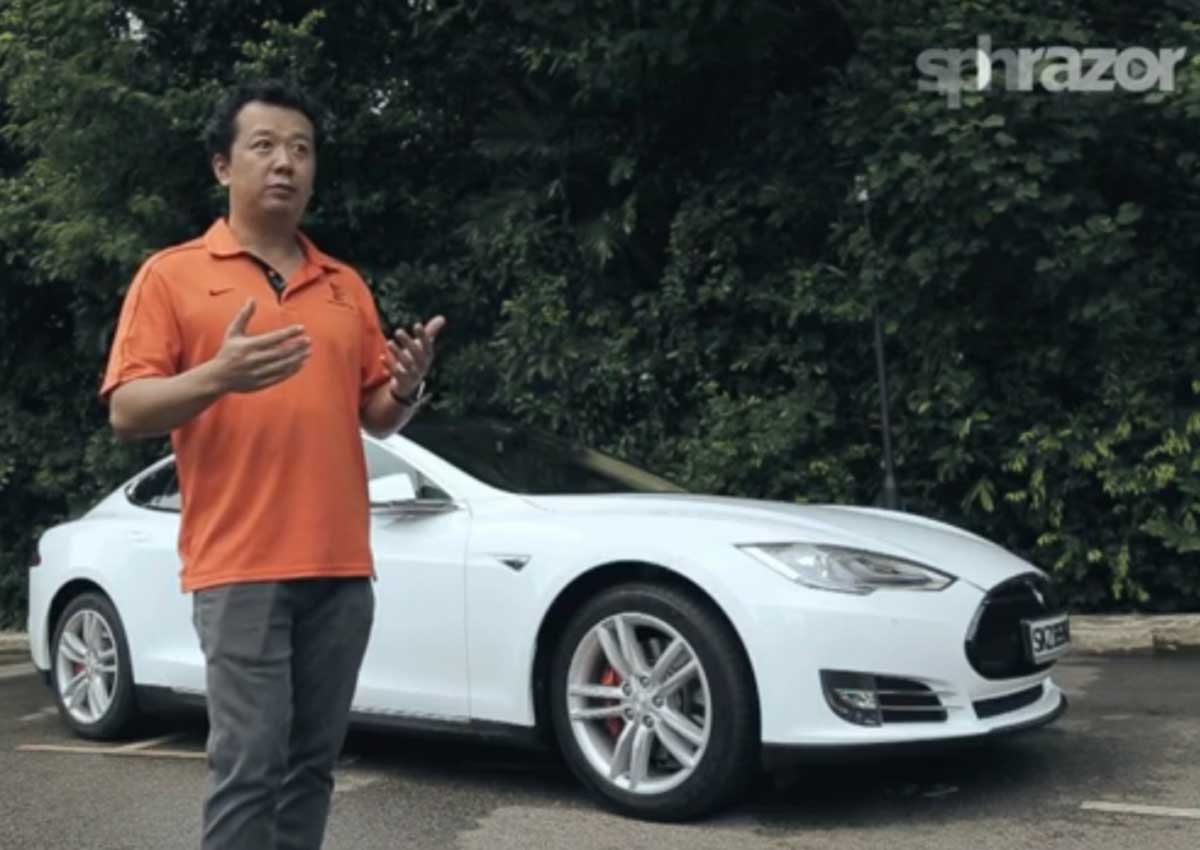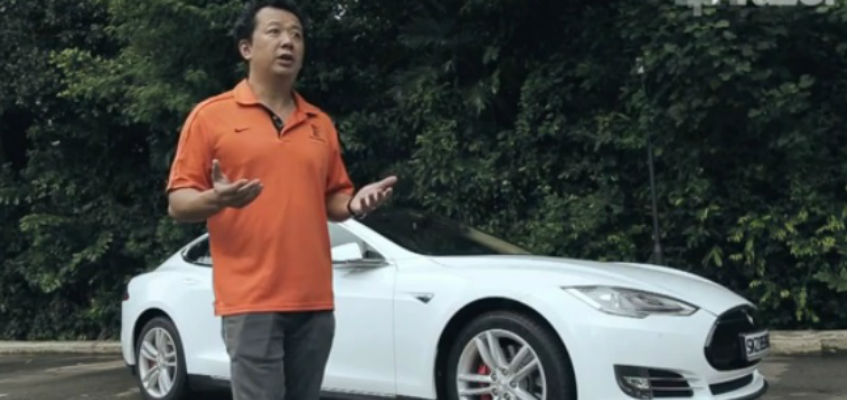SINGAPORE – The Land Transport Authority (LTA) is in discussion with car maker Tesla after the owner of an imported used Tesla Model S said he was charged $15,000 in carbon surcharge.
In a statement on Thursday, LTA said that emissions and fuel efficiency of used cars can vary significantly depending on their prevailing condition.
The Model S imported by IT professional Joe Nguyen was first registered in Hong Kong in 2014.
Based on tests run by VICOM Emission Test Laboratory (VeTL), Mr Nguyen’s used Model S had an electrical energy consumption of 444 Wh/km, LTA said.
An emissions factor of 0.5g CO2/Wh was then applied. This emissions factor, which is based on data provided by the Energy Market Authority, is consistently applied to electric and plug-in electric hybrid cars to account for the carbon emissions produced when the car is being charged.
The outcome showed a carbon emissions level which placed Mr Nguyen’s car in the C3 surcharge band under the Carbon Emissions Vehicle Scheme (CEVS).
The authority also clarified that electric cars are not carbon emissions free. “They may not produce emissions from the tailpipe like conventional cars, but they take electrical power from the national power grid which has to burn fuel to produce the electricity, and in the process produces carbon emissions,” a spokesperson said.
According to Tesla, the energy consumption rating for Mr Nguyen’s Model S was 181 Wh/km when it left the Tesla factory on June 28, 2014.
While a brand new Tesla Model S would have fallen into the CEVS A1 band, and enjoyed a rebate, Mr Nguyen’s car is not brand new and was thus subject to emissions and fuel efficiency tests.
“We cannot make exceptions as it would not be fair to other car owners, and would have an impact on our environment-related policies,” LTA said.
However, LTA said it will be working with Tesla engineers to re-examine the case.
ljessica@sph.com.sg








